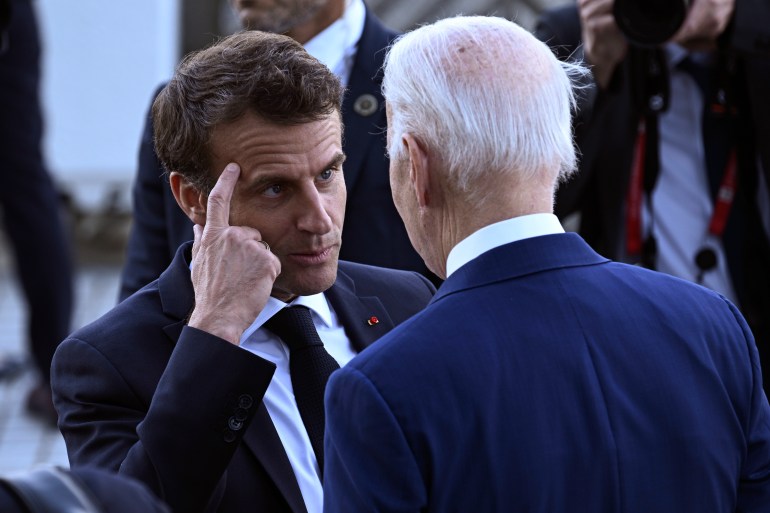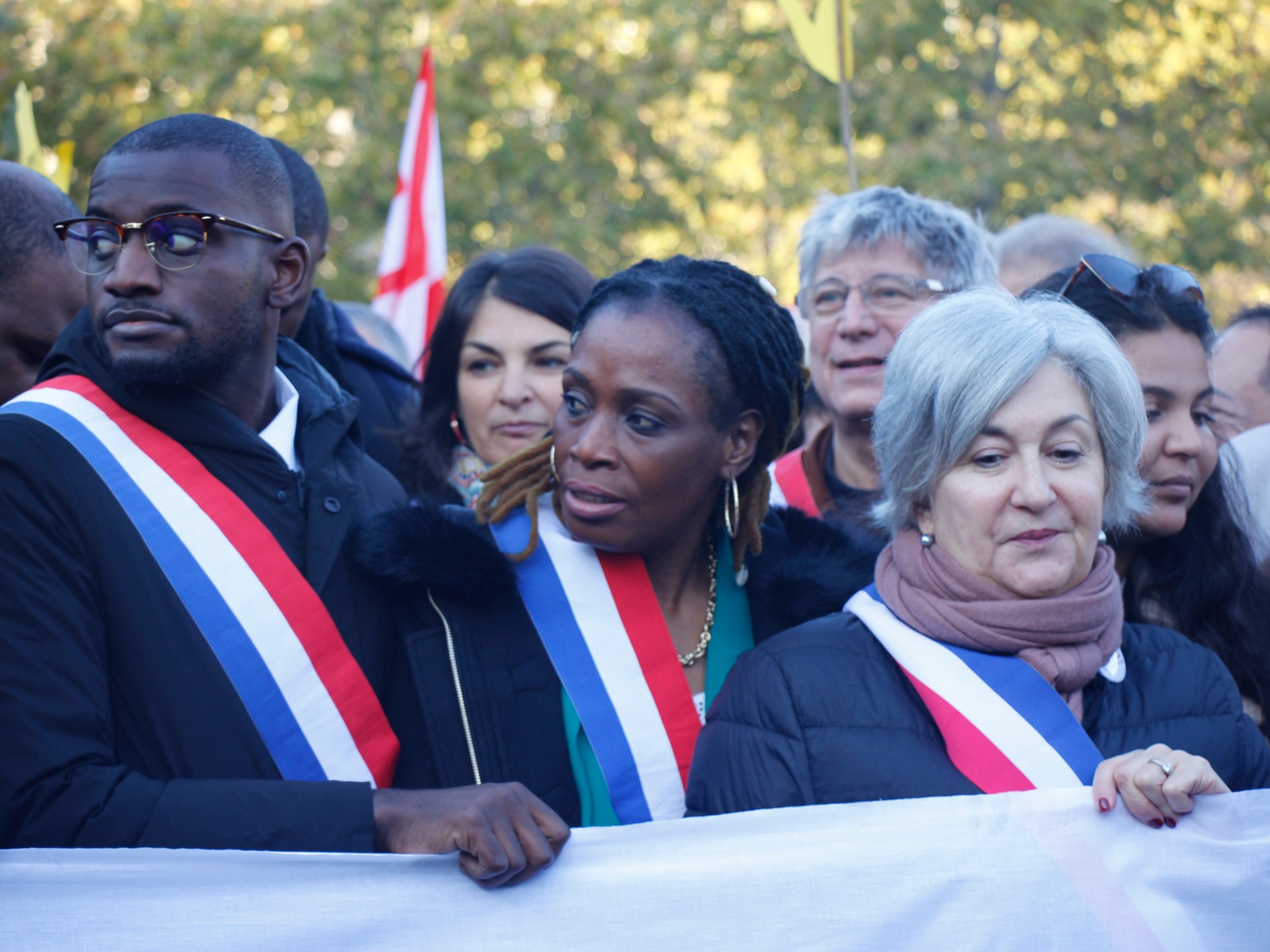Nothing remains of France’s Arab policy except memories and confusion. The latest of which is France’s position on what is happening in Gaza and the aggression it is being subjected to, where French President Macron – as the French expression goes – spewed hot and cold air. He said something that satisfied the Israelis in Israel, and conveyed that the idea of an international alliance against Hamas went unheeded as soon as it was uttered.
He dared to visit Ramallah, Amman and Cairo, something no Western president had done before him, and he said something that satisfied the general feeling in the Western world on the BBC channel, about the necessity of stopping the fighting and stopping targeting civilians, and he called Netanyahu to apologize for misunderstanding his statement. Unlike de Gaulle in his famous phrase: “He solved the complex Middle East with simple ideas,” President Macron solved the increasingly complex Middle East with unclear, confused, and unfruitful ideas.
What is important is not to hold the French president accountable for what is a clear failure, but perhaps it is to extract an Arab policy for France, from the womb of the state structure, or the establishment, that is at the level of its history and the pioneering role it seeks in a world that is under formation. France can influence the course of affairs and weigh in, but according to new visions and a new method. For its own benefit first, for the benefit of the Palestinians second, and for the region third. Why not to the whole world!
France has a wealth of its Arab policy, which can be described as balanced, and even positive in general, including: France’s position on the 1967 war, and De Gaulle’s famous phrase about Israel, which the Israelis have not forgiven him for, and which is difficult to translate into Arabic: “This self-important, tyrannical people.” To France’s embrace of Yasser Arafat when he uttered his famous sentence, about the organization’s charter – in French – at the Arab World Institute in Paris (1990), all the way to President Chirac’s position on the 2003 war on Iraq, and before that, the speech of then French Foreign Minister Dominique Villepin in the Security Council.
This was – perhaps – the golden era of France’s Arab policy. The Union for the Mediterranean project – launched by Nicolas Sarkozy – was born dead, and France no longer had anything but a bilateral policy, with partners, or selling weapons, or perfumes, or investment, or the Sorbonne and Louvre Français, in some Gulf countries, with its policy fluctuating in Maghreb region.
France could have a role other than the American role, perhaps to play a role on the scene of events in a world under formation. In order for France to regain its weight in the balance of the new world, it must have a balanced policy in the Middle East, and that is the gateway to having a role in the world.
What has characterized France’s Arab policy with President Macron is not only the lack of vision, but also a lack of style, in conflicting and provocative statements, such as saying: “Islam is in crisis,” and rushing into a dialogue with Al Jazeera to correct his lapse, and claiming the necessity of historical reconciliation. With Algeria, and the statement to students of Algerian origins that he received at the Elysee, to the question about whether the existence of an Algerian nation should be raised, and in his solutions following the Beirut port explosion (August 2021), and his speech to the residents of Beirut without the presence of the country’s authorities, to his direct speech to the Moroccan people. After the Al Haouz earthquake.
Macron’s style – as the French magazine Le Point described it – is troubled. A man may have good intentions, but, as the French expression goes: “Hell is paved with good intentions.”
French diplomacy must be saved, and the first thing that must be saved from it are arbitrary statements that do not come from a deep analysis by experts, specialists, and knowledgeable people. Rather, statements should be avoided, for something related to diplomatic work, which is secrecy, until a path or direction matures.
Without a doubt, the head of state has a role in setting the foreign directions of a country and in drawing up its diplomacy, but foreign policy in democratic countries is also subject to directions that are maintained by the public structures, such as defence, foreign intelligence, and the Ministry of Foreign Affairs… at the center and through its representations in the world.
The purpose of this article is not to participate in a “French-French” dialogue about France’s role in the Middle East, which takes place through what is circulated in the columns of some right-leaning newspapers such as Le Point and Le Figaro, but what concerns me here is that an Arab policy be established for France, so that there is no room left for an actor. Today, we realize its results after it sponsored the “Peace Process” since the 1991 Madrid Conference.
The United States did not – as it presented itself – play the role of an “honest mediator” and did not respect the requirement of “land for peace.” Rather, the reference for the American administration that must go before it is the Abraham Accords, with lip-service statements about the “two-state solution” and turning the conflict into a mere conflict. Real estate, in which the Palestinians conclude a deal and extract a “rewarding” price in the polite form of transfer; Counting on the fact that time, fatigue, and “realism” will push the Palestinians to “reckon” and leave Palestine or what remains of it, willingly, with the material and moral support of the “brothers.”
This is the American policy framework for “solving” the Palestinian issue, not in the sense of finding a solution to it, but eliminating it and emptying it just as a company or party would be dissolved in the name of realism. The “Al-Aqsa Flood” destroyed all of this, and weakened the role of the United States, especially after its complete alignment with the aggressor.
France could have a role other than the American role, perhaps to play a role on the scene of events in a world under formation. In order for France to regain its weight in the balance of the new world, it must have a balanced policy in the Middle East, and that is the gateway to having a role in the world.
Of course, the issue is more than a declaration of intentions, but in drawing up a careful policy, it is analyzed more and declared less, and depends on the maturity of paths, by listening to those concerned and coordinating with regional actors. France is the Western country that would – I say would – have a balanced Arab policy. I find it pointless to search for it in Washington, London or Berlin, for reasons that are well known and have become clear recently.
The door should not be closed in front of France, as it is the only country in the West – (I forgot Spain, but Spain does not have a seat in the Security Council, even though it has historical and geographical credit) – that can bear the concerns of the Palestinians, for a just, lasting and comprehensive solution.
But France’s historical credit is not enough unless France reconsiders its internal newspaper, or its test paper, as the French expression goes. Foreign policy is a continuation of domestic policy, and France cannot play a role in the Middle East and the Arab world, but rather the Islamic world, with an internal policy of inspection – (from the Inquisition) – towards its Muslim citizens, tracking their clothing, food, and freedom.
An effective role for France in the Middle East is important for France, and important for the Palestinians and the Arabs. France can only find strategic depth in the Arab world and Africa.
There is a rift of mistrust between France and the United States; As soon as the United States gained independence from Britain with the support of the French revolutionaries and the ideas of the Enlightenment philosophy, the rebellious son returned to the embrace of the motherland and became the one carrying its inheritance. For Americans, France represents what every powerful person glorifies: the recognition of debt. Will France seize a historical opportunity, the likes of which history may not have provided, to be faithful to its heritage, values and history, and to play a role in the Middle East in accordance with the requirements of justice and fairness?

#France #play #role #happening #Gaza
2023-11-24 05:54:22


